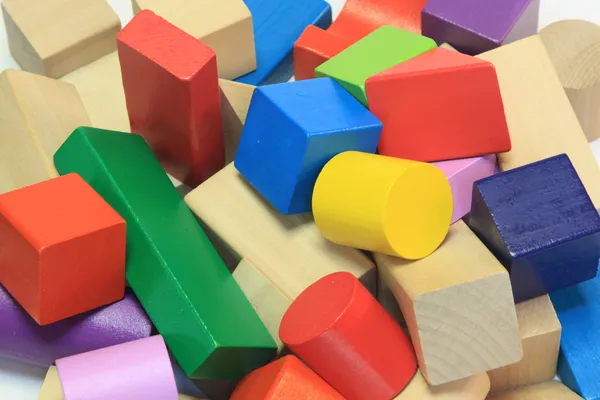The Benefits and Types of Wooden Blocks for Children's Development
- Written by Viw Magazine
Wooden blocks are simple, classic toys that have been enjoyed by children for generations. They are made from various types of wood, including hardwoods like maple, beech, and oak, and softwoods like pine and cedar. Wooden blocks come in various shapes and sizes and can be plain or decorated with letters, numbers, and pictures.
These blocks are not only fun toys for kids, but they also offer numerous benefits for their development. Playing with wooden blocks can help children develop their motor skills, spatial awareness, creativity, and problem-solving abilities. Additionally, wooden blocks provide a screen-free play experience that encourages children to use their imaginations and interact with the world around them.
Wooden blocks are a timeless toy that continues to be popular today due to their simplicity, versatility, and educational value. They can be enjoyed by children of all ages and are a great addition to any toy collection.
Types of Wooden Blocks
There are several types of wooden blocks available on the market, each with its unique features and benefits. Here are some of the most common types of wooden blocks:
- Standard Blocks: These are the most basic type of wooden blocks and come in various shapes and sizes, such as squares, rectangles, and triangles.
- Alphabet Blocks: These blocks are decorated with letters of the alphabet and are often used to help children learn their ABCs and spelling.
- Number Blocks: Similar to alphabet blocks, number blocks are decorated with numbers and are used to help children learn counting and basic arithmetic.
- Pattern Blocks: These blocks come in various geometric shapes and can be used to create patterns and designs.
- Building Blocks: These are larger wooden blocks that can be used to build structures like towers, bridges, and castles.
- Unit Blocks: Unit blocks are uniform in size and shape, and come in a set of various shapes and sizes. They are designed to promote creativity and imaginative play and are often used in preschool and daycare centres.
- Waldorf Blocks: These blocks are inspired by the educational philosophy of Rudolf Steiner, and are designed to encourage open-ended play and imaginative exploration.
Overall, wooden blocks are versatile toys that can be used in various ways to promote learning and development in children.
Benefits of Using Wooden Blocks
Playing with wooden blocks offers several benefits for children's development, including:
- Develops fine motor skills: Playing with wooden blocks requires children to pick up, stack, and manipulate the blocks, which helps to develop their fine motor skills and hand-eye coordination.
- Encourages creativity and imagination: Wooden blocks provide an open-ended play experience that encourages children to use their imaginations and come up with their ideas for building and creating.
- Enhances spatial awareness: Building structures with wooden blocks requires children to understand and manipulate space, which can enhance their spatial awareness and visualization skills.
- Promotes problem-solving: Building with wooden blocks can present challenges for children, such as figuring out how to balance a structure or create a stable base, which can promote problem-solving and critical thinking skills.
- Supports language development: Wooden blocks that are decorated with letters or numbers can be used to help children learn the language and basic arithmetic skills.
- Provides a screen-free play experience: Wooden blocks offer a break from screens and provide a hands-on, tactile play experience that is important for children's development.

Overall, wooden blocks are versatile toys that offer a range of benefits for children's physical, cognitive, and social-emotional development.
Conclusion
In conclusion, wooden blocks are timeless toys that offer numerous benefits for children's development. They come in various shapes, sizes, and types, and can be used in different ways to promote creativity, problem-solving, and spatial awareness. Wooden blocks provide a screen-free play experience that encourages children to use their imaginations and interact with the world around them. Moreover, they are durable, eco-friendly, and can be enjoyed by children of all ages. Wooden blocks are an excellent addition to any toy collection and are sure to provide hours of educational and imaginative play.





